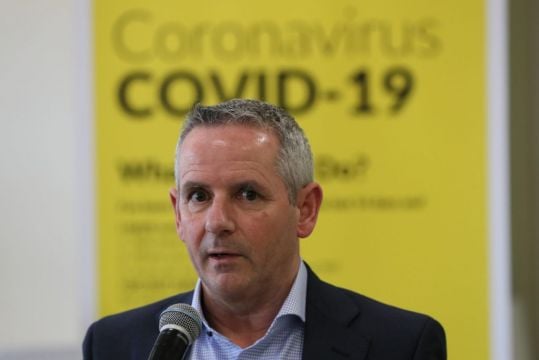The rule forcing schoolchildren to stay home and isolate for 14 days as close contacts of Covid-19 cases was “probably unnecessary”, HSE chief executive Paul Reid has said.
As The Irish Times reports, The National Public Health Emergency Team (Nphet) are meeting on Thursday to consider the spread of the Delta variant and Covid-19 cases in school and the effect of children isolating at home.
A further 1,346 cases of Covid-19 have been confirmed in Ireland. As of Sunday morning, there were 315 Covid-positive patients in hospital, of whom 59 were in intensive care.
There are about 12,000 children out of school as close contacts of cases among an overall school population of one million students, which is a “very small percentage,” said Mr Reid.
There was a need to balance “what is necessary and what is proportionate” in the public health advice for children being obliged to stay home from school as close contacts, he said.
“There is no doubt that these are difficult considerations but certainly the impact it is having on children out of school where it is probably unnecessary and the wider impact on their social development has to be considered too,” he told Newstalk’s On The Record on Sunday.
Small outbreaks
“Certainly the strong view from the public health teams is it is time to look at this policy now and Nphet are doing that.”
Mr Reid said that there were small outbreaks at 1,300 primary schools and preschool facilities and about 750 secondary schools. “It’s a very significant number of schools,” he said.
There was a “very significant, disproportionate number of cases” among children aged up to 18 accounting for 45 per cent of Covid-19 tests but just 20 per cent of the population, he said.
However, the positivity rate has been coming down from the low-teens to 7 per cent in the zero to 18-year-old age group.
Speaking on RTÉ’s This Week radio programme, Mr Reid rejected the view of Clíona Ní Cheallaigh, an infectious diseases consultant at St James’s Hospital in Dublin, that most children under the age of 12 were going to be infected by Covid-19 by the springtime.
“We are not seeing most children being infected at all. In fact, if you look at the cases that we have had, it is a much smaller percentage of children at school,” he said.







